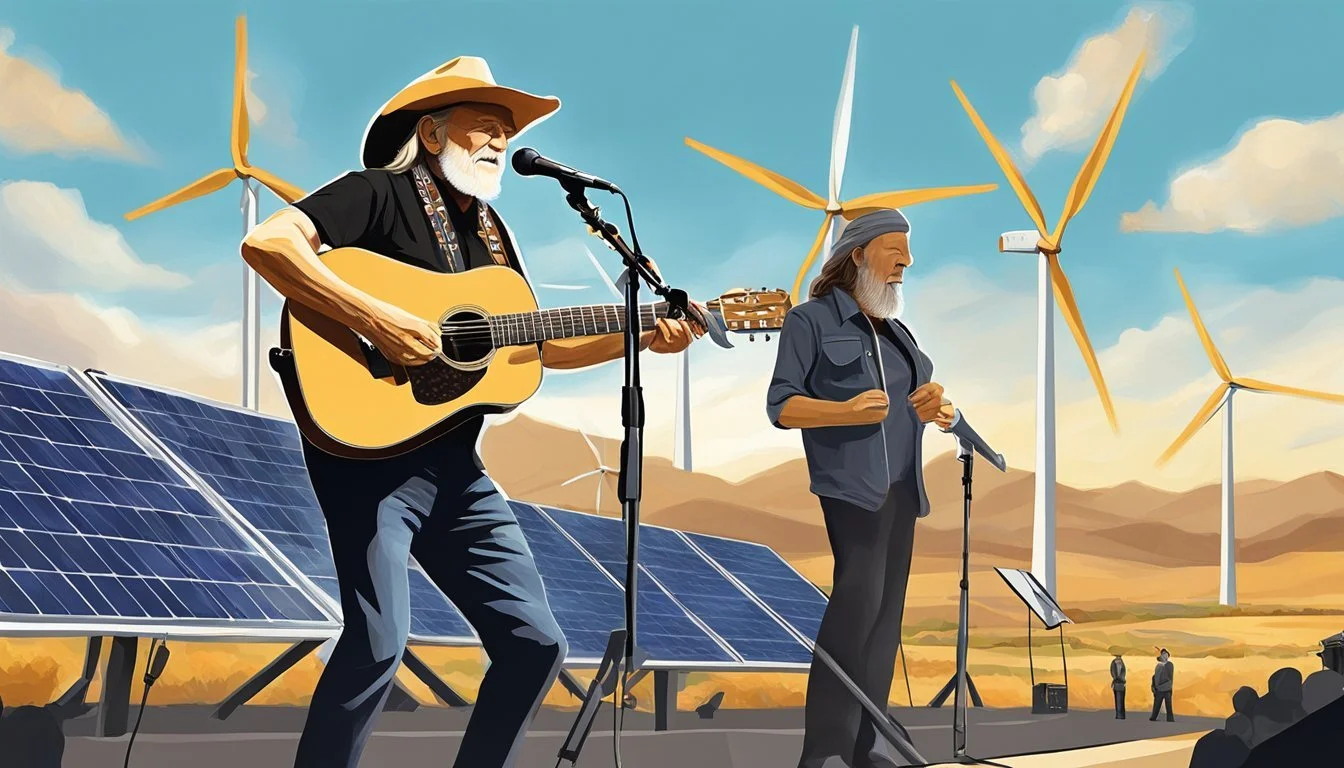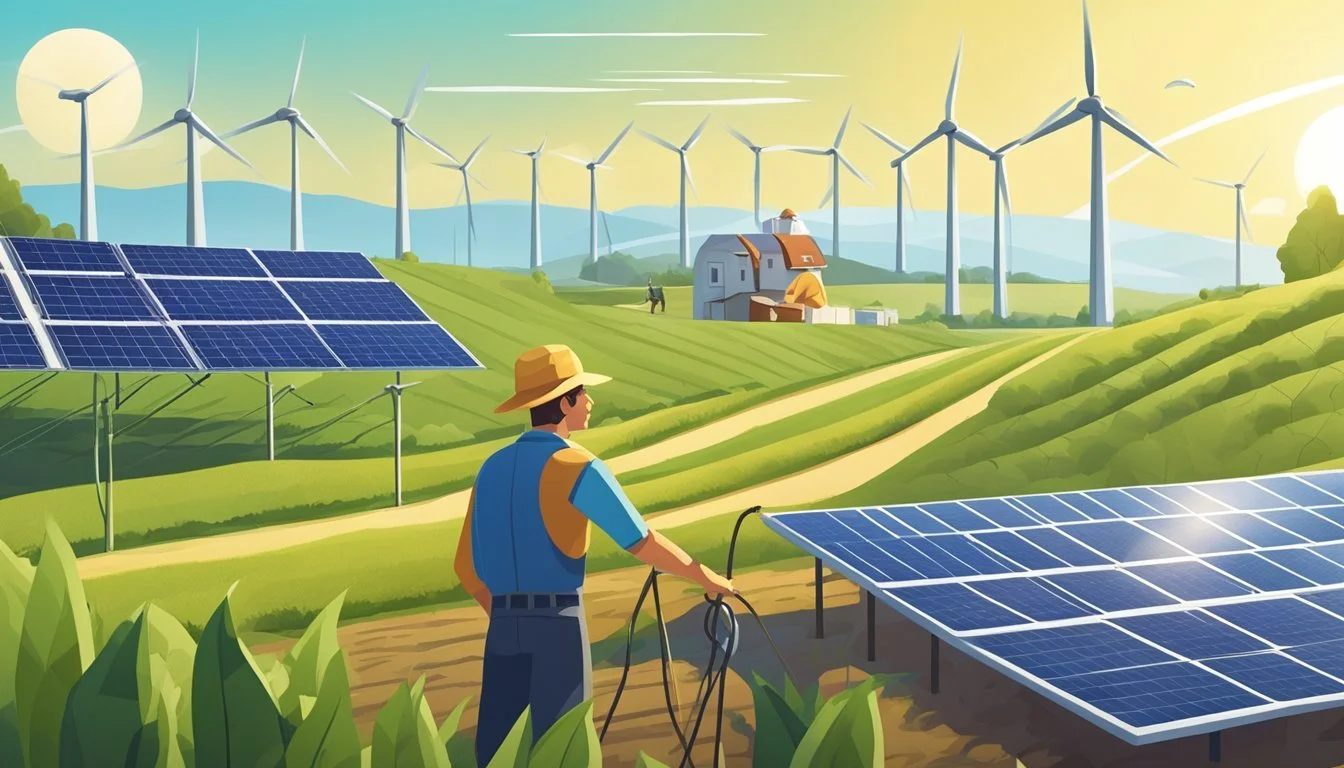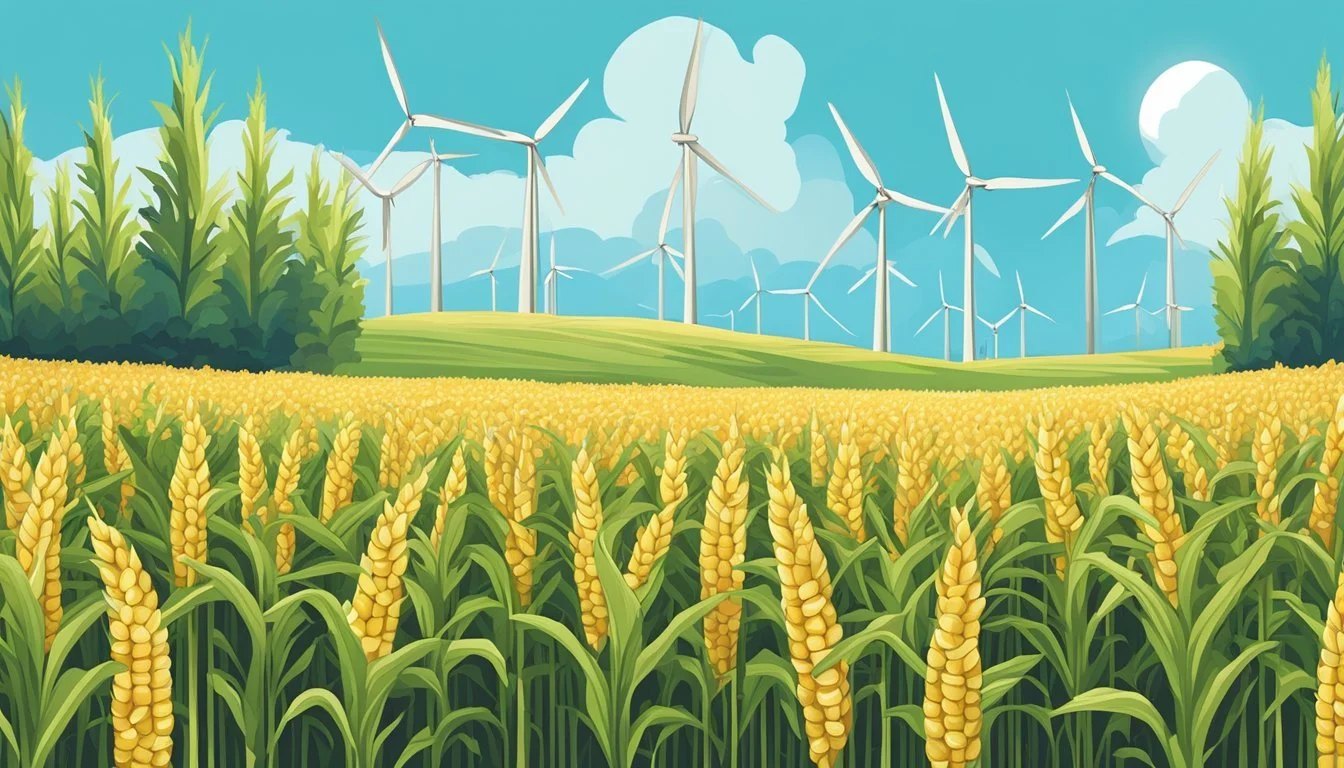Willie Nelson Renewable Energy: The Country Legend Leading the Green Revolution!
Willie Nelson, the iconic country music legend, has made significant contributions to renewable energy over the past two decades. In 2004, Nelson founded Willie Nelson Biodiesel, a company that produces biofuel under the brand name BioWillie. This venture marked Nelson's entry into the world of sustainable energy, driven by his desire to reduce dependence on fossil fuels and promote environmentally friendly alternatives.
Nelson's interest in biodiesel was sparked when his wife purchased a diesel car and began fueling it exclusively with biodiesel. Impressed by its efficiency and performance, the couple recognized the potential of biofuels to address energy and environmental challenges. BioWillie biodiesel is made from vegetable oils or animal fats, offering a renewable alternative to traditional petroleum-based diesel fuel.
Beyond biodiesel, Nelson has also championed other forms of renewable energy. In 2023, he hosted the Luck Reunion festival, which featured the largest solar-powered system ever used at a music event. This groundbreaking initiative showcased Nelson's commitment to promoting sustainable practices in the entertainment industry and demonstrated the viability of renewable energy sources for large-scale events.
Willie Nelson's Advocacy for Renewable Energy
Willie Nelson has been a prominent advocate for renewable energy, particularly biofuels, for decades. His efforts have focused on promoting sustainable alternatives to fossil fuels and supporting rural communities.
Involvement With Biofuel Initiatives
Willie Nelson's passion for renewable energy led him to become a vocal supporter of biofuels in the early 2000s. He partnered with biodiesel experts Bob and Kelley King to establish two biodiesel plants in 2004 - one in Salem, Oregon and another in Carl's Corner, Texas. These facilities helped increase biofuel production and availability.
Nelson also authored a book titled "On the Clean Road Again: Biodiesel and the Future of the Family Farm" in 2007. This publication highlighted the potential of biodiesel as an eco-friendly fuel source and its benefits for rural economies.
His advocacy extended to collaborations with organizations like the National Biodiesel Board. Nelson used his platform to raise awareness about renewable fuels and their positive impact on the environment and agriculture.
Launch of BioWillie Brand
In 2005, Willie Nelson launched his own biodiesel brand called BioWillie. This initiative aimed to provide a cleaner-burning fuel alternative for truck drivers and farmers across the United States.
BioWillie fuel was made from soybeans and other vegetable oils. It could be used in diesel engines without modifications, making it accessible to a wide range of vehicles.
Nelson promoted BioWillie through various channels, including his concert tours. He often fueled his own tour buses with the biodiesel blend, demonstrating its practicality and effectiveness.
The brand helped increase visibility for biofuels and sparked discussions about renewable energy options in the transportation sector. While BioWillie faced challenges in scaling up, it played a significant role in raising public awareness about alternative fuels.
Biodiesel as an Alternative Fuel
Biodiesel offers a renewable energy solution for diesel engines. This alternative fuel derives from vegetable oils or animal fats and provides several advantages over conventional petroleum diesel.
Basics of Biodiesel
Biodiesel is a clean-burning fuel made through a chemical process called transesterification. This process converts fats and oils into fatty acid methyl esters (FAME).
Vegetable oils like soybean, canola, and palm are common biodiesel sources. Animal fats and recycled cooking oils can also be used.
Biodiesel can be used pure (B100) or blended with petroleum diesel. Common blends include B20 (20% biodiesel) and B5 (5% biodiesel).
The fuel's properties are similar to petroleum diesel, allowing it to power standard diesel engines with little or no modification.
Environmental Benefits
Biodiesel reduces greenhouse gas emissions compared to petroleum diesel. It produces lower levels of carbon monoxide and particulate matter.
The fuel is biodegradable and non-toxic, minimizing environmental risks from spills or leaks.
Biodiesel's renewable nature helps decrease dependence on fossil fuels. It can be produced domestically, enhancing energy security.
The fuel's production supports agriculture and creates jobs in rural areas.
Application in Diesel Engines
Most diesel engines can run on biodiesel blends without modifications. Pure biodiesel (B100) may require some engine adjustments.
Biodiesel has excellent lubricating properties, potentially extending engine life.
The fuel's higher cetane number results in easier cold starts and quieter operation.
Biodiesel's solvency can clean fuel systems, but may require more frequent filter changes initially.
Cold weather can cause biodiesel to gel faster than petroleum diesel. Fuel heaters or blending with petroleum diesel can mitigate this issue.
Production and Use of BioWillie Biodiesel
Willie Nelson's BioWillie biodiesel is produced at specialized plants and distributed to truck stops across the United States. This alternative fuel blend aims to reduce petroleum dependence while supporting American farmers.
BioWillie Biodiesel Plant Operations
BioWillie biodiesel is manufactured at dedicated production facilities. The fuel consists of 20% biodiesel derived from soybean oil and 80% petroleum diesel. This B20 blend balances environmental benefits with engine performance.
Soybean oil, sourced from American farmers, undergoes a chemical process called transesterification. This converts the oil into biodiesel suitable for use in diesel engines. Quality control measures ensure the final product meets industry standards.
The plants operate efficiently to keep costs competitive with traditional diesel fuel. Production capacity has expanded to meet growing demand from truckers and environmentally-conscious consumers.
Distribution at Truck Stops Nationwide
BioWillie biodiesel is available at select truck stops across the United States. This network allows long-haul truckers to access the alternative fuel on major routes. Participating stations feature branded pumps and signage promoting the BioWillie brand.
The fuel's compatibility with existing diesel engines makes it an attractive option for truckers. No vehicle modifications are required to use BioWillie biodiesel. This ease of adoption has helped increase its popularity in the trucking industry.
Distribution partnerships with major truck stop chains have expanded BioWillie's reach. The fuel's availability continues to grow as more stations add biodiesel blends to their offerings.
Economic Impact on Family Farmers
Willie Nelson's advocacy for renewable energy has significant economic implications for family farmers. His efforts have created new income streams and fostered energy independence in rural communities.
Support for Local Agriculture
Willie Nelson's BioWillie initiative promotes the use of biodiesel made from vegetable oils, including those produced by family farms. This creates a new market for farmers' crops, diversifying their income sources. Many farmers now grow soybeans or other oilseed crops specifically for biodiesel production.
The increased demand for biofuel feedstocks has led to higher prices for these crops, boosting farm incomes. Some farmers have invested in small-scale biodiesel production facilities on their own land, adding value to their raw agricultural products.
BioWillie's success has also encouraged more research into advanced biofuels, potentially opening up new opportunities for farmers to grow specialized energy crops.
Energy Independence and Job Creation
Family farmers using renewable energy sources like solar and wind power can reduce their operating costs significantly. Many have installed solar panels or wind turbines, generating electricity for farm operations and selling excess power back to the grid.
This shift towards energy independence protects farmers from volatile fossil fuel prices and creates a new revenue stream. In some cases, farmers lease portions of their land for large-scale wind or solar projects, providing stable, long-term income.
The renewable energy sector has created new rural jobs in manufacturing, installation, and maintenance of renewable energy systems. These jobs help diversify rural economies and provide employment opportunities for farm families.
Case Studies: BioWillie in Action
Willie Nelson's BioWillie biodiesel initiative has been implemented in various projects across the United States. These case studies showcase the practical applications and impact of this renewable fuel in different settings.
On the Clean Road Again Campaign
The On the Clean Road Again campaign brought BioWillie to truck stops across America. Carl's Corner, a truck stop between Dallas and Waco, Texas, became a focal point for this energy revolution. Truckers could fill up their vehicles with B20, a blend of 80% petroleum diesel and 20% biodiesel made from soybean oil.
This campaign highlighted the potential of BioWillie to reduce dependence on foreign oil while supporting American farmers. The biodiesel blend offered improved efficiency and performance, catching the attention of long-haul truckers and environmentally conscious drivers alike.
Pacific Biodiesel Project in Maui
Willie Nelson's commitment to renewable energy extended to Hawaii through the Pacific Biodiesel Project in Maui. This initiative aimed to produce biodiesel from locally sourced vegetable oils and waste cooking oil.
The project demonstrated the feasibility of small-scale biodiesel production in island communities. It created jobs, reduced waste, and provided a sustainable fuel alternative for local vehicles and machinery. The success of this venture showcased the potential for biodiesel to address both environmental concerns and energy needs in isolated locations.
Future of Renewable Energy and Biofuels
Renewable energy and biofuels are poised to play a crucial role in the global energy landscape. Projections indicate biofuel demand will increase by nearly 30% by 2028, signaling growing adoption.
Advancements in technology are making biofuels more efficient and cost-effective. Researchers are exploring new feedstock options beyond traditional crops to improve sustainability.
The National Biodiesel Board continues to advocate for policies supporting biofuel production and use. Their efforts aim to reduce dependence on fossil fuels and combat climate change.
Alternative fuels like biodiesel offer environmental benefits by reducing greenhouse gas emissions. This aligns with global efforts to mitigate the impacts of climate change.
Challenges remain in scaling up biofuel production. High costs and limited feedstock availability are obstacles the industry is working to overcome.
Renewable energy sources like solar and wind power are complementing biofuels in the transition to cleaner energy. This diverse approach strengthens energy security and sustainability.
Investment in research and development is driving innovation in the renewable energy sector. New technologies may emerge to further enhance the efficiency and viability of biofuels.
As awareness of environmental issues grows, consumer demand for renewable energy options is likely to increase. This could accelerate the shift away from fossil fuels in the coming years.




